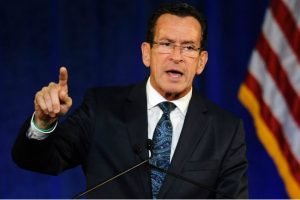 MGM Resorts International, the gambling operator that stays behind Springfield’s casino, is currently seeking to join forces with the U.S. Department of Interior and convince the state officials to back off from their plans to allow the construction of the first tribal Connecticut casino located on a non-tribal plot of land. The move comes only a month after the Mashantucket Pequot and Mohegan tribes filed a legal suit against the U.S. Department of Interior, claiming that their rights under the third casino gaming amendments are to be violated.
MGM Resorts International, the gambling operator that stays behind Springfield’s casino, is currently seeking to join forces with the U.S. Department of Interior and convince the state officials to back off from their plans to allow the construction of the first tribal Connecticut casino located on a non-tribal plot of land. The move comes only a month after the Mashantucket Pequot and Mohegan tribes filed a legal suit against the U.S. Department of Interior, claiming that their rights under the third casino gaming amendments are to be violated.
Last month, the Mashantucket Pequot and Mohegan tribal nations filed a lawsuit to convince Interior Secretary Ryan Zinke to approve the two tribes’ gaming agreements with the state of Connecticut and allow the construction of the first off the tribal land casino, planned to be located near East Windsor. As it can be recalled, Connecticut Gov. Dannel Malloy signed a bill that allows the tribal-owned gaming company MMCT to realize its plans and build a third Connecticut casino on a non-tribal land. The lawsuit came shortly after the Department of Interior failed to make a decision and allow the two tribal nations to open their joint venture casino in East Windsor.
MGM Resorts Claims Legal Right to Intervene in the Case
 The Department of Interior’s failure to address the issue in a timely manner was just the right thing for MGM Resorts, which was, and still is, opposing the construction of a third casino in Connecticut. The gambling conglomerate MGM unveiled that it is seeking to side with the U.S. Department of Interior and kill the Mohegan and Mashantucket Pequot tribes’ plan to open a third casino in East Windsor. The construction of a tribal-owned casino on a non-tribal land is to violate the state’s deal with Foxwoods and Mohegan Sun that grants exclusive rights to the two federally recognized tribal nations.
The Department of Interior’s failure to address the issue in a timely manner was just the right thing for MGM Resorts, which was, and still is, opposing the construction of a third casino in Connecticut. The gambling conglomerate MGM unveiled that it is seeking to side with the U.S. Department of Interior and kill the Mohegan and Mashantucket Pequot tribes’ plan to open a third casino in East Windsor. The construction of a tribal-owned casino on a non-tribal land is to violate the state’s deal with Foxwoods and Mohegan Sun that grants exclusive rights to the two federally recognized tribal nations.
In a court filing Tuesday, the gambling operator announced that the third casino may hit the profitability of MGM’s casino in Springfield, which is currently under construction. Hence, the Las Vegas-based gambling operator should have the legal right to intervene in the legal battle.
The state and the tribes, on the other hand, do not agree with MGM’s intervention in the case, while the Department of Interior still remains silent regarding the issue. The two tribes, which run the Foxwoods Resort Casino and Mohegan Sun Casino on their tribal land pay a 25% fee of their slots revenue to the state in order to preserve their exclusive right over the casino operations in the state. The recently signed casino gaming amendment was said to violate the federal Indian Gaming Regulatory Act (IGRA), as it supports commercial instead of tribal gambling.



















